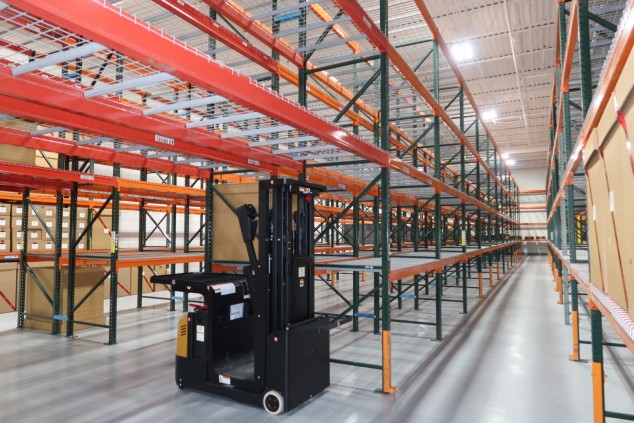Proper evidence management is one of law enforcement’s most basic but vital daily tasks. Collection, packaging, preservation, transportation, storage, and retrieval – all while maintaining a documented chain of custody history – must be accomplished in a near-perfect manner to ensure the integrity of the evidence throughout its journey through the criminal justice system.
With advances in science, technology, training, and experience, law enforcement personnel have become experts in the evidence-collection process. This feat allows them to collect and preserve an ever-growing volume of evidence – a requirement driven by the increasing number of criminal acts perpetrated.
What’s coming, and has already arrived at many agencies, is a perfect storm of evidence storage problems – the sheer volume of evidence overwhelming law enforcement’s capacity to store it properly long-term.
While describing evidence on a “journey” through the criminal justice system is not inaccurate, it implies movement. But that movement contains periods, sometimes years, of inactivity before the evidence is accessed again.
Local, county, state, and even federal facilities were not built to weather the perfect evidence storage storm they are experiencing today.
And that’s where the private sector comes in.
ADVANTAGES OF PRIVATE SECTOR LONG-TERM EVIDENCE STORAGE
Private evidence storage facilities are professionally staffed, operated, and designed specifically for the task.
SECURITY
Private facilities feature state-of-the-art security measures and, depending on the provider, can include:
- Round-the-clock surveillance systems
- Controlled access
- Multiple alarm systems
- 24/7 security personnel
- Unmarked, non-publicized locations
- Back-up power features
DUE DILIGENCE EVIDENCE PRESERVATION
Evidence comes in all shapes, sizes, types, and preservation requirements. Private facilities are prepared for this and safeguard the evidence depending on its type. Safeguards can be:
- Climate-controlled areas that maintain the correct temperature and humidity levels depending on the type of evidence stored within them
- Shrink or bubble wrapping of items applied when the evidence arrives at the facility, adding another layer of non-tampered with proof to the item
- Application of unique labeling and photographs taken of the evidence
- Evidence labeling, cataloging, storage location, and tracking are ensured by modern barcode or RFID systems
- The evidence is not touched again until retrieved by authorized personnel
Professional facilities will be equipped with refrigeration and freezer units and secure armories within their locations to properly store firearms, DNA evidence, and other special handling and storage items.
EVIDENCE TRANSPORT
Many private providers will pick up evidence from law enforcement agencies and, when the time comes, deliver the evidence back, eliminating any transportation issues to/from an off-site storage location. Strict chain of custody documentation is maintained during transport, and the integrity of the process is ensured with:
- Secure, unmarked, climate-controlled vehicles that are alarmed, monitored 24/7, and equipped with GPS tracking devices
- Staffed by experienced, trained, and vetted personnel
- Non-stop transport between the agency and the storage facility.
COST AND RESOURCE EFFICIENCY
Evidence storage as we know it today is resource-intensive. The private sector has stepped up to provide cost and procedurally-effective options for law enforcement. Agencies that take advantage of these off-site services can reallocate budget resources, free up space for other uses, and reassign personnel as needed.
PRIVATE SECTOR CONSIDERATIONS
LEGAL COMPLIANCE
Private companies providing long-term evidence storage for law enforcement should be considered experts in the laws and regulations concerning evidence management. They must be prepared and able to comply with all the laws regarding evidence retention periods and maintain a documented, unbroken chain-of-custody record for the items in their possession. In a courtroom, the private sector will be held to the same standard as law enforcement.
Reputable companies should establish membership in professional organizations, such as the Illinois Association of Property and Evidence Managers, the International Association of Property and Evidence, state chief’s and sheriff’s associations, and others, to ensure their services reflect the most up-to-date best practices of evidence handling and storage.
Law enforcement agencies must properly vet any private company offering off-site evidence storage. Ensuring the company complies with all laws and is prepared to handle and store its evidence correctly is critical to the integrity of the agency’s criminal cases.
COSTS
The cost-benefit equation will be closely examined by those responsible for allocating funds for law enforcement agency budgets – especially since the privatization of evidence storage off-site is a unique concept. Law enforcement executives who wish to utilize the private sector’s solution to their evidence storage problems should be prepared to explain the cost-benefit equation in planning their budget requests.
SUMMARY
Privatization of long-term evidence storage is a win for law enforcement. Contracting with a private company staffed with experts who understand the laws, have proper procedures in place, and can provide a facility designed for and ready to handle any evidence is a real solution to the increasing evidence management and storage problem law enforcement agencies face today. However, interested law enforcement agencies must thoroughly vet these companies to ensure that they can deliver their services in a fashion that improves the agency’s operations, upholds the law, and is cost-effective.
FORTRESS PLUS SOLUTIONS
At Fortress Plus Solutions, we provide safe, secure storage, handling, and transportation of evidence and property requiring long-term and special storage. We offer evidence-room audits to help law enforcement maintain accurate and up-to-date evidence-room inventory records. In our blog, we post informative articles about privatized long-term storage. To learn more about our services, click here.

